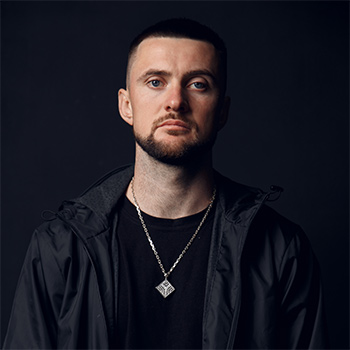

Vitas (real name — Vitaliy Vladasovich Grachev) is a Ukrainian-Russian singer, composer, and actor, known for his unique voice and extraordinary vocal range. He was born on February 19, 1979, in Daugavpils, Latvia. The artist is famous for his exceptionally high notes, original delivery, mystical stage image, and iconic hits such as “Opera #2”, “The Bird of Happiness”, and “Mama”.
Early Life
Vitas spent his childhood in Odesa, where his family moved soon after his birth. His musical talent emerged at an early age. He graduated from Secondary School No. 35 and a music school, majoring in accordion. In addition to mastering the instrument, young Vitaliy was actively involved in amateur performances and vocal training.
After school, he performed at the Theater of Vocal Plasticity and Parody, where he developed his stage presence and unique performance style. It was there that he met Sergey Pudovkin, who became his long-time producer and co-author of many projects.
After completing the ninth grade, Vitas moved to Moscow, dreaming of a big stage career. The early years in the capital were difficult, but his persistence and dedication led to long-awaited success.
Breakthrough and Fame
True fame came in 2000 with the release of the song and music video “Opera #2”. The unique fusion of operatic vocals and pop arrangements caused a sensation. The video instantly became viral on Russian television, and Vitas earned a reputation as a mysterious phenomenon with the “voice of an angel.”
Audiences were captivated not only by his voice but also by his striking stage persona — white suit, cold expression, and mystical atmosphere. Even Alla Pugacheva, when inviting him on her show “Visiting Alla”, doubted the naturalness of his voice — but the singer hit an extremely high note live, dispelling all doubts.
Career Development
By 2002, Vitas became the youngest artist to perform a solo concert at the State Kremlin Palace. His program “Philosophy of Miracle” was a sold-out success and opened the door to international tours.
That same year, the singer and his producer joined the Board of Trustees of the World League “Peace for Goodness,” where Vitas received a symbolic “Stone of Peace” — approximately 350 million years old — a rare acknowledgment of his humanitarian contribution through art.
International Success
In the mid-2000s, Vitas toured extensively worldwide, performing in China, Japan, Israel, Germany, the USA, Kazakhstan, Belarus, and other countries. He became particularly popular in China, where he was dubbed “the man with a five-octave voice.” His Chinese albums and appearances on CCTV garnered millions of views, and he recorded several songs in Chinese.
Between 2005–2007, Vitas launched the concert program “Songs of My Mother”, with over 600 concerts — one of the largest tours in the CIS. In 2007, he presented “Return Home”, a production three years in the making, featuring more than 20 new compositions.
Performer and Actor
Beyond music, Vitas also explored acting. In spring 2003, he played the role of a “devilish boy” in Roger Vitrac’s play “Victor or Children in Power” at the Mayakovsky Theater. He also appeared in musical productions, films, and television projects, including TV series and documentaries.
Music and Style
Vitas’ music blends elements of pop, classical, opera, and ethnic styles. His main hallmark is a vocal range exceeding five octaves, with a signature falsetto. His songs often explore themes of love, motherhood, spiritual growth, and life philosophy.
His most famous works include: “Opera #2”, “The Bird of Happiness”, “Mama”, “The Star”, “The 7th Element”, “Smile”, “Love”, and “Light of Mother’s Love”.
Vitas and Internet Culture
Since the 2010s, Vitas has become a viral sensation on the internet. His music video “The 7th Element” gained millions of views on YouTube and inspired countless memes and parodies worldwide. Western creators, including PewDiePie, dubbed him a “legend of vocal avant-garde,” and TikTok introduced his art to a new generation.
Recent Years
In recent years, Vitas continues performing and collaborating with international venues. He remains highly popular across Asia, where he’s recognized as one of the most iconic figures in the Eastern pop scene, while recording new songs in Russian, English, and Chinese.
He is also involved in charity and cultural programs aimed at fostering global cooperation through music.
Interesting Facts
- Vitas’ vocal range exceeds five octaves — one of the widest among male singers worldwide.
- His 2002 Kremlin concert marked the youngest solo debut in the venue’s history.
- “Opera #2” is considered one of the most recognizable Russian songs abroad.
- In China, Vitas was named “the most popular foreign artist” and performed at the CCTV New Year Gala.
- His image inspired cosplayers and performers worldwide, while the “Weird Russian Singer” meme turned him into a 21st-century internet icon.
Legacy
Over more than two decades, Vitas has become a unique phenomenon in pop culture. He fused academic vocals with pop format, paved the way for experimentation in Russian pop music, and bridged East and West. His work continues to inspire professional musicians and lovers of unconventional art alike.
Today, Vitas remains one of the most recognizable artists in the post-Soviet space, still amazing audiences with his voice and stage mastery.









